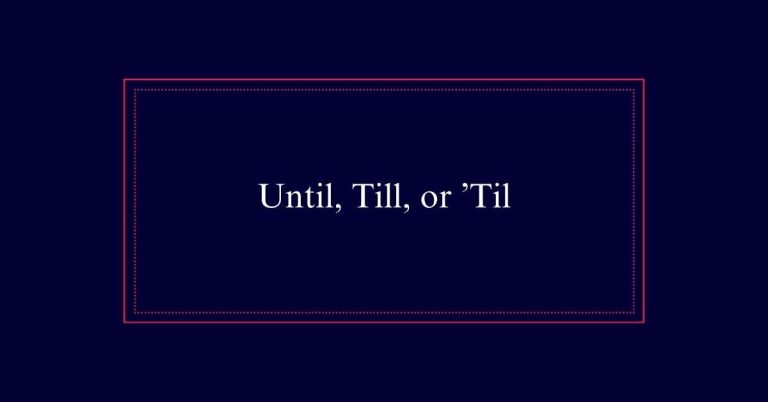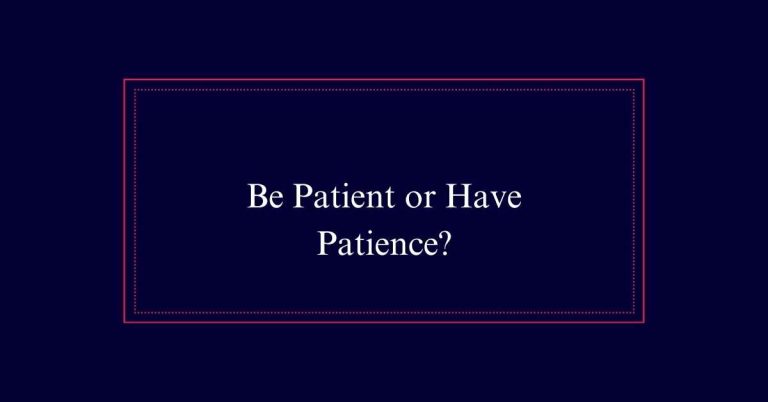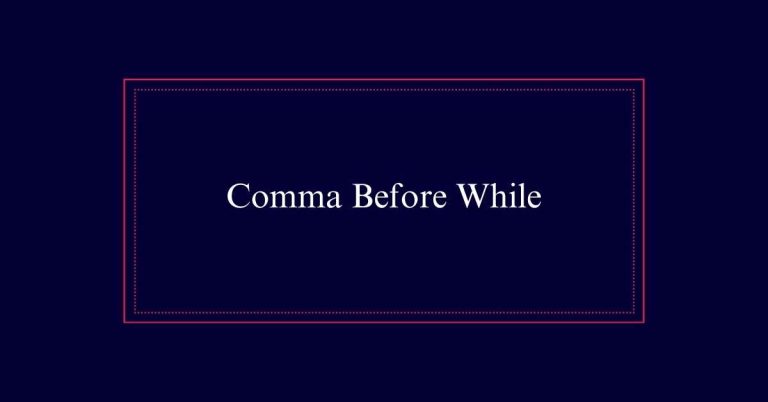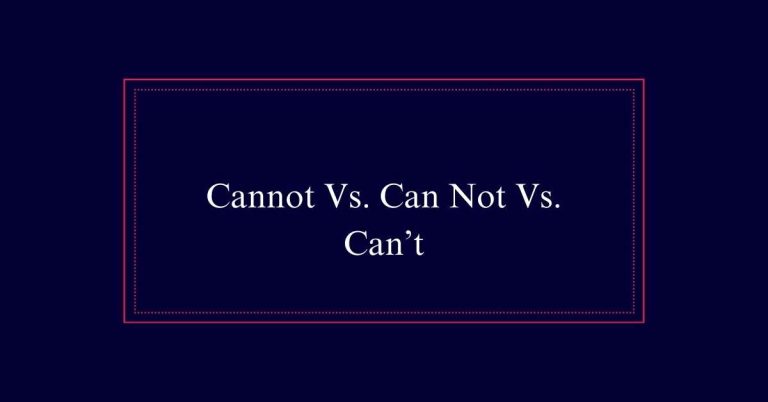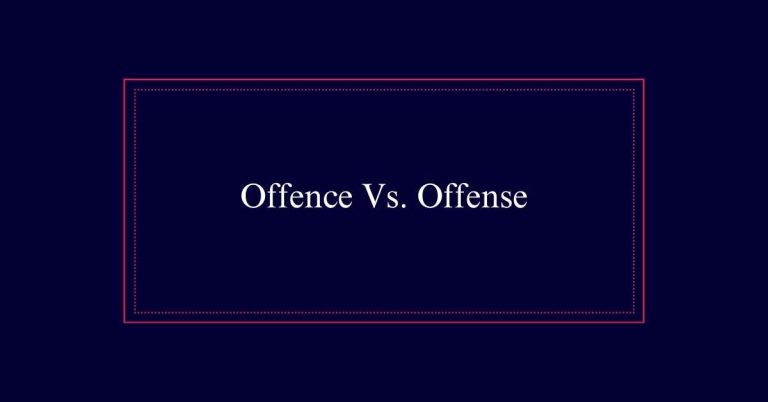What Is “Forgo”?
The term “forgo” means to abstain from or choose not to partake in something. It often implies a conscious decision to give up certain pleasures or activities. For example, someone might forgo dessert to maintain a healthy diet or skip a social event to study for an important exam. This action showcases self-discipline or sacrifice. The past tense of “forgo” is “forwent,” and the past participle is “forgone.” Additionally, it’s important not to confuse “forgo” with “forego,” which means to precede or come before.
Definition of ‘Forgo’
The verb ‘forgo’ means to do without or choose not to partake in something. This action involves a conscious decision to abstain from certain pleasures or activities.
For instance, one might forgo dessert to maintain a healthy diet. The word is often used to express the notion of sacrifice or discipline. In religious contexts, individuals may forgo earthly delights for spiritual reasons.
The past tense of ‘forgo’ is ‘forwent,’ and the past participle is ‘forgone.’ For example, ‘They forwent the party’ and ‘They have forgone their usual luxuries.
Understanding the meaning of ‘forgo’ helps in appreciating its use in various contexts, whether in daily decisions or more significant life choices.
Examples of ‘Forgo’ in Use
To illustrate the application of ‘forgo,’ consider these examples from everyday life and literature.
In daily scenarios, one might forgo dessert to maintain a healthy diet. A student could forgo a social event to study for an important exam.
In literature, characters often forgo personal desires for greater causes. For instance, a hero may forgo personal safety to save others. Another example is a character who forgoes luxury to live a simpler life.
These examples show how ‘forgo’ conveys the act of willingly giving up something valuable or enjoyable. By understanding these instances, we grasp the practical and narrative significance of the term in various contexts.
Past Tense and Past Participle
Understanding the past tense and past participle forms of ‘forgo’ is essential for accurate and effective communication. The past tense of ‘forgo’ is ‘forwent,’ while the past participle is ‘forgone.’ These forms are used to describe actions that were intentionally avoided or given up in the past. Here is a simple table to illustrate:
| Verb Form | Example Sentence | Explanation |
|---|---|---|
| Present | They forgo dessert every night. | Current action of giving up |
| Past | They forwent the trip last year. | Action given up in the past |
| Past Participle | They have forgone the pleasures of life. | Action given up over a period |
| Future | They will forgo the meeting tomorrow. | Action to be given up in the future |
| Continuous | They are forgoing their lunch break. | Ongoing action of giving up |
Forgo’ Vs. ‘Forego
Many writers often confuse ‘forgo’ with ‘forego,’ but they have distinct meanings and proper uses. ‘Forgo’ means to do without something or to abstain from it. For instance, ‘She decided to forgo dessert.’
On the other hand, ‘forego’ means to precede or come before. An example is, ‘The foregoing chapter explained the rules.’
Style guides like AP and the Chicago Manual of Style recommend maintaining this distinction. Mixing them up can lead to confusion. For example, ‘Maybe we should forgo the fun’ is correct.
Common Misconceptions
A common misconception is that ‘forgo’ and ‘forego’ can be used interchangeably. These words have different meanings and should be used correctly to guarantee clarity in writing. ‘Forgo’ means to do without or abstain from something, while ‘forego’ means to precede or go before. Misusing these can lead to confusion.
| Term | Meaning |
|---|---|
| Forgo | To do without or abstain from |
| Forego | To precede or go before |
| Example | ‘They decided to forgo dessert.’ |
| Example | ‘The foregoing statement was clear.’ |
Many writers fall into this trap, but adhering to style guides like AP and Chicago Manual can help maintain precision.
‘Foregone Conclusion’ Explained
Misunderstanding the distinction between ‘forgo’ and ‘forego’ can also lead to confusion about the term ‘foregone conclusion.’
A ‘foregone conclusion’ refers to an outcome that is seen as inevitable or certain. The term is derived from Shakespeare’s play ‘Othello,’ where it signifies a result known in advance.
It does not relate to the verb ‘forgo,’ which means to do without something. Instead, ‘foregone’ is the past participle of ‘forego,’ meaning to come before.
In this instance, ‘foregone’ implies that the conclusion has been predetermined by preceding events. Understanding this difference is essential for accurate communication and writing.
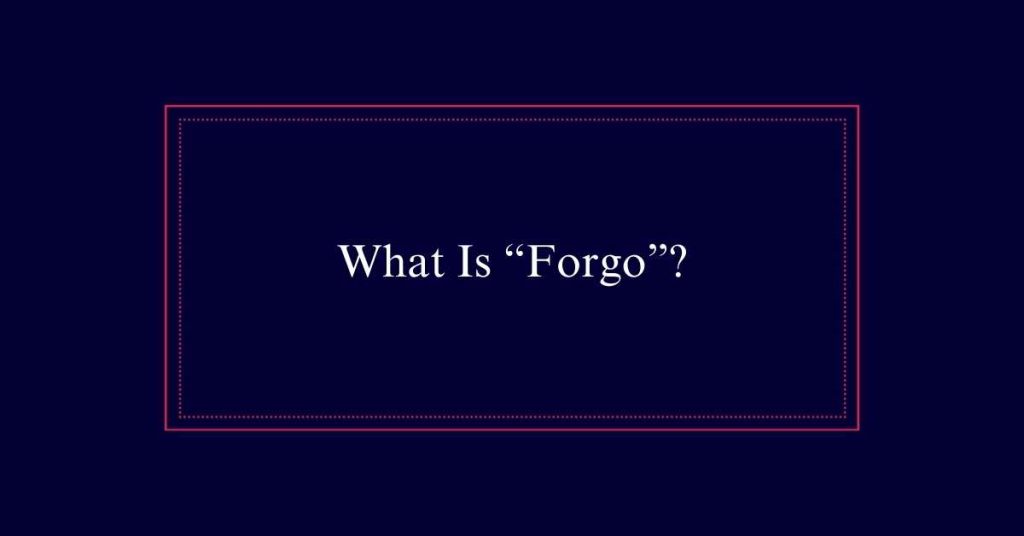
Formal Uses of ‘The Foregoing’
In formal writing, ‘the foregoing’ refers to content that has been previously mentioned. This term is often used to summarize or draw attention to earlier statements. It helps establish coherence and clarity in complex documents.
For example, after listing a series of objectives, one might write, ‘The foregoing goals shall measure the superintendent’s performance.’ This phrase guarantees that the reader understands the link between the initial points and subsequent discussion.
Using ‘the foregoing’ is particularly common in legal, academic, and professional documents. It serves to tie different parts of the text together, making it easier for readers to follow the argument or narrative. Therefore, it is a valuable tool in formal writing.
Writing Impact and Clarity
Understanding the distinction between ‘forgo’ and ‘forego’ is essential for maintaining clarity and precision in writing. ‘Forgo’ means to do without or abstain from something, while ‘forego’ refers to something that precedes or comes before.
Confusing these terms can lead to misunderstandings and diminish the impact of your message. To guarantee your writing is clear and precise, it is vital to use these words correctly.
Consistently using ‘forgo’ and ‘forego’ correctly enhances clarity.
Avoid Misinterpretations: Correct usage prevents readers from misinterpreting your intent.
Adhere to Style Guides: Following style guides such as AP and Chicago Manual helps maintain professional standards.
Proper usage of these terms improves overall communication effectiveness.
Frequently Asked Questions
How Can ‘Forgo’ Be Used in Casual Conversation?
In casual conversation, ‘forgo’ can be used to indicate skipping or choosing not to have something. For example, “I decided to forgo dessert tonight,” or “Let’s forgo the movie and go for a walk instead.”
Are There Any Synonyms for ‘Forgo’?
Yes, there are synonyms for ‘forgo’. They include ‘abstain from,’ ‘relinquish,’ ‘give up,’ ‘waive,’ ‘renounce,’ and ‘surrender.’ Each of these words can be used to indicate the act of choosing not to do or have something.
What Are Some Antonyms of ‘Forgo’?
Antonyms of ‘forgo’ include ‘indulge,‘ ‘partake,’ and ‘accept.’ These words highlight the act of choosing to enjoy or engage in something rather than abstaining from it. Using such antonyms can clarify the intended meaning.
How Did the Word ‘Forgo’ Originate?
The word ‘forgo’ originated from Old English ‘forgan,’ meaning to go without. Over time, it evolved through Middle English as ‘forgoon.’ Its primary meaning is to abstain from or relinquish something voluntarily.
Can ‘Forgo’ Be Used in Idiomatic Expressions?
Yes, ‘forgo’ can be used in idiomatic expressions. For example, “forgo pleasures for greater gains” means to give up short-term enjoyment for long-term benefits. Consistent use enhances clarity and precision in writing.


